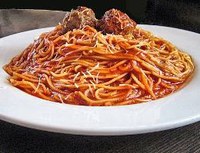(BRUSSELS) – Food companies are alleged to be selling lower quality food products in some EU countries. The European Parliament’s internal market committee looked into the issue Wednesday.
Studies show that food marketed in some central and eastern EU countries, although safe, are of a lower quality than the same products in the same packaging in Western Europe. This varies from less meat in meat products, to less cocoa in chocolate, no oranges in orange juice and syrup or artificial sweeteners instead of sugar.
Tests have been conducted for sodas, meat, fish or dairy products, teas and confectionery. Fish sticks contained less fish in Slovakia than in Austria (58% vs 65%). No oranges had been used for orange drinks in Slovakia and the Czech Republic, while those sold in Germany contained 3% orange concentrate. In Hungary 71 out of 96 products were different compared to the same products sold in Italy and Austria. Differences were also found for cosmetics, detergents and pet food.
Adjusting products to local tastes, preferences and prices is standard practice and can also be legal. The difference in taste might also stem from using local ingredients in local factories or cheaper ones to adjust to local purchase power. But in this case, the prices were the same or higher with no mentions on the package, which was misleading.
In order to better help EU countries identify these illegal practices, the European Commission recently issued guidelines on how to apply EU law in case of lower quality products being sold . These guidelines were presented to Parliament’s internal market committee on 11 October. “Companies can legally differentiate their products, but this needs to be understandable for consumers,” said Commission representative Francisco Fonseca Morillo. “They should not be misled.”
He also said that companies should not give consumers the impression that products wrapped in the same packaging and sold under the same brand are of the same quality and composition if this was not the case.
During the hearing MEPs welcomed EU action on this issue, but said the guidelines were insufficient as they did not cover other products such as cosmetics and detergents.
Slovakian ECR member Richard Sulík said it was not about the product having to taste and cost the same, but that consumers need to be informed.
German Green member Julia Reda called the practice “insulting to consumers”.
Croat S&D member Bijlana Borzan, who sponsored food tests in her own country, said: “The existing legal framework is not enough, otherwise we would not have this problem.”
Polish EPP member Adam Szejnfeld said he considered the practice “criminal offence, fraud”.
German EPP member Andreas Schwab said: “If the list of ingredients was correctly indicated, the product can be legally on the market.” However, Czech ALDE member Dita Charanzova said: “Telling people to just read the fine print is not enough.”


